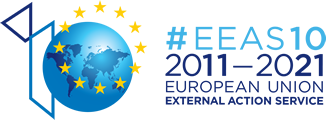Sustainable Development in the Arctic

20/02/2017 - 16:25
A safe, stable, sustainable and prosperous Arctic is important not just for the region itself, but for the EU and the rest of the world. The EU is committed to contributing to sustainable development in a balanced and integrated manner.
While the Arctic region is rich in resources both on land and in the seas, the Arctic faces several challenges due among other things to its sparse population, limited logistical networks, and fragile environmental conditions.
The inhabitants of the Arctic are familiar with these conditions – however harsh they may seem to people living in lower latitudes – and have socio-economic aspirations for sustainable development under Arctic conditions. The indigenous peoples who have lived in various parts of this vast region for millennia have specific traditional knowledge and across the Arctic region, several forms of traditional livelihoods have developed over the centuries, not least reindeer herding, fishing, and hunting. As modern life has increasingly taken hold in Arctic regions, other forms of economic activity and technologies have been added. These include public administration and education, more intensive fishing, maritime and shipping operations, resource extraction, research activities, tourism, telecommunications etc.
The Arctic region attracts increasing interest from economic and civil society within each Arctic state as well as from many other parts of the world.
The EU is committed to implementing the United Nations (UN) 2030 Agenda for Sustainable Development(link is external) to achieve sustainable development in its three dimensions – economic, social and environmental – in a balanced and integrated manner. Several EU activities taking place in and relating to the Arctic region should contribute to the achievement of the UN Sustainable Development Goals (SDGs(link is external)).
....
Connectivity and space technology
The Commission Directorate-General for Regional and Urban Policy (DG Regio) leads EU work to increase communications connectivity, and the Directorate-General for Growth (DG Grow) is leading EU work on space technology.
Some obstacles to sustainable development in the Arctic stem from its vast size, extreme climatic conditions, sparse population and relative inaccessibility. These challenges can be countered through EU space-based services which are able to provide cost-effective solutions to meet the needs of those living and working in the region.
Improved access to the internet and other means of communication in Arctic regions is an important factor that could increase economic productivity and facilitate access to wider markets for businesses operating in the Arctic. Increased connectivity could also bring strong social benefits, increasing the possibility for communication and creating/strengthening active links between indigenous communities, as well as facilitating remote education and public administration activities.
Earth observations
EU space programmes provide powerful observation coverage and operational services in the Arctic, which could increase efficiency in agriculture and fisheries, optimise transport, and improve crisis response.
- Copernicus(link is external), part of the EU Earth Observation Programme, collects data from multiple sources to provide polar surveillance and monitoring services across six thematic areas: land, marine, atmosphere, climate change, emergency management and security
- the European Global Navigation Satellite System Galileo(link is external) will provide an open and free service available across the European Arctic region that could be useful for aviation, maritime, search and rescue and agricultural sectors
Data sharing
As a member of the Group on Earth Observations (GEO(link is external)), the EU will promote an integrated pan-Arctic observing system through the GEO Cold Region Initiative (GEOCRI(link is external)), which aims to promote Earth observations data sharing and cooperation, enabling improved information services for stakeholders. This action has been funded by Horizon 2020, the EU Research and Innovation Framework Programme which is contributing to the ongoing development of pan-Arctic observing initiatives.
...
See more ... https://eeas.europa.eu/headquarters/headquarters-homepage_en/20952/Sustainable%20Development%20in%20the%20Arctic